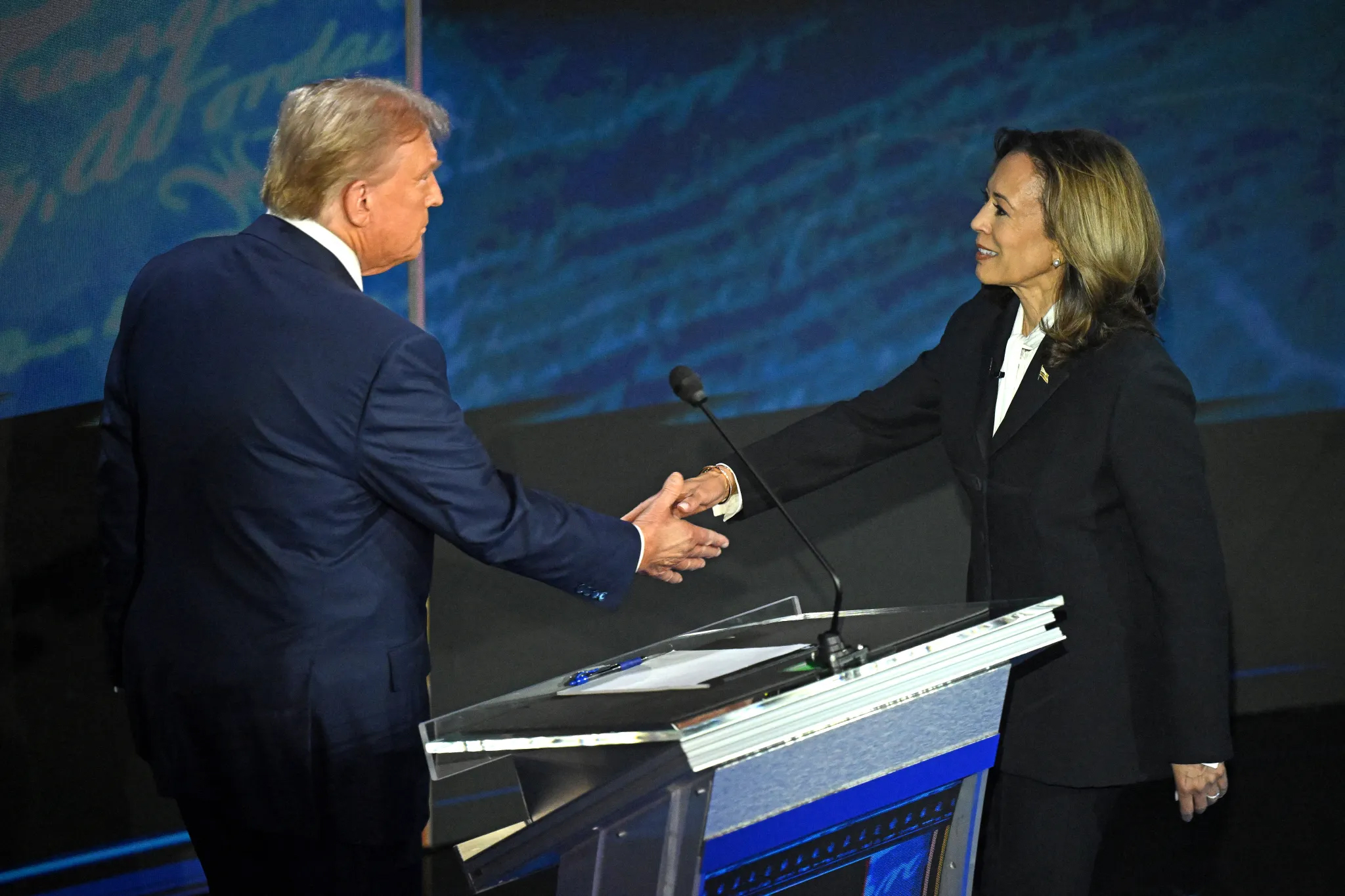We tend to imagine Moses as someone larger than life. Films like The Ten Commandments, The Prince of Egypt, and Exodus: Gods and Kings focus on the heroic role he played in the epic struggle for the Israelites’ liberation from slavery. They build up to dramatic moments like the parting of the Red Sea and the giving of the law at Mount Sinai.
The Promised Land takes a somewhat different approach. It’s a comedy done in the style of mockumentaries like The Office and Parks and Recreation, using humor to highlight the humanity of Moses and his people as they trudge through the desert and get used to the daily grind of life after Egypt.
Moses (The Chosen’s Wasim No’mani) is worn down by the Israelites’ petty complaints. His resentful sister Miriam (a delightfully deadpan Shereen Khan) is irritated by his bubbly wife Zipporah (Tryphena Wade) in a subplot inspired by Numbers 12:1. And his suspicious cousin Korah (Brad Culver) begins to notice there’s something odd about Chisisi (Dav Coretti), an Egyptian who ended up on the wrong side of the Red Sea and is now trying to pass himself off as a Hebrew.
The series currently consists of just one episode, a pilot that covers the events of Exodus 15–18. (It’s now playing on YouTube.) But the producers recently secured $5 million to make five more episodes, which they will start shooting at the end of this month.
Writer and director Mitch Hudson, who has been an assistant director on The Chosen since it went into production six years ago (he works primarily with the background actors) says he hopes to shoot 40 episodes of The Promised Land.
But first, he has to get the first season done.
Christianity Today had a chance to speak to Hudson about the series. This conversation has been edited for length and clarity.
Just for starters, I have to confirm: On The Chosen, you are an assistant director, not an assistant to the director?
Yes! Not the director’s assistant, not the assistant to the director, I’m an assistant director. Yeah, that’s funny. I’m not Dallas’s Dwight.
You’ve worked with crowd scenes on The Chosen and now you’re doing your own series about Moses, who’s associated with the proverbial cast of thousands.
We’re going to do something very special in the first season that will hopefully incorporate hundreds of people. [After the interview, it was announced that fans can volunteer to be extras for an episode called “The Tabernacle.”] Certainly, it’s familiar territory for me after all that we’ve done on The Chosen.
You’ve said that you aren’t reverent toward your characters but you are reverent toward God. But that doesn’t mean God doesn’t have funny lines.
When I read some of God’s conversations with Moses in the Bible, I just want to burst out laughing. Like when the Israelites complain they don’t get to eat any meat and God’s reply is basically, Oh you’ll eat meat. You’ll eat lots of it. You’ll get sick of it (Num. 11:18–20).
I think people can be nervous about depicting biblical characters as people who made mistakes, who did things that were wrong and fell on their faces. Sometimes we think we can’t show the weaknesses of characters in Scripture because somehow that would be disrespectful. They’re in the Bible, and the Bible is holy, and so if they’re in the Bible, then we need to treat them that way too.
But the truth is that God used them because they were people and because they were imperfect, and I’m trying to depict them the way that they are in Scripture—as people who have flaws, as people who do make mistakes but keep trying anyways. Hopefully we find a little bit of connection to them.
As for the conversations between God and Moses, you’re right, there’s definitely some humor in there.
But those conversations with God and Moses we can’t see—because the documentary crew can’t go there. The documentary crew can’t go up onto the mountain with Moses; they can’t go into the Holy of Holies. So those conversations are private. I’m trying to do that on purpose because I don’t want it to ever be that I’m looping in God with the jokes.
But then when Moses comes back and he’s trying to communicate what God has said, then I can get into the fallibleness, basically, of Moses trying to convince hundreds of thousands of people to listen to him—and he’s not a born leader. That, to me, is naturally very funny.
You’ve said that you’re looking forward to shooting the Golden Calf episode (Ex. 32), that it’ll be “fun” but also “hurt.” How will you approach that tonal mix?
Also, the biblical version of that story ends on a very violent note. In the pilot, violence is alluded to but it’s all offscreen or in the past; we don’t really confront it. Is Promised Land going to go there? And if so, how is it going to balance that with the humor?
For me the main thing is trying to never undercut the severity of a moment that’s in the Bible but also recognizing that you can show a piece of a story, not show the whole thing, and still communicate how devastating it was.
My goal is that this is generally a show you can watch with your family (circumcision jokes aside).
There are also some mystical things in the biblical story—Moses has a glowing face, so he has to wear a veil (Ex. 34:29–35), people see God standing on something like a pavement “bright blue as the sky” on Mount Sinai (Ex. 24:9–10). Maybe some of those things the documentary crew won’t get to see, but you’re at least going to have to deal with the pillar of cloud and the pillar of fire (Ex. 13:21–22).
The scripts that I’ve written for the next five episodes incorporate some of these mystical moments of people seeing God in different ways. God appears as a thunderstorm at the top of the mountain at one point. He also descends upon the tabernacle as a cloud.
For us, it was a question of “How can we portray these elements of the story while also being limited as a documentary crew?” What could we see that everyone else could see?
There are going to be some fun ways that we incorporate the regular citizens’ perspective on some of these supernatural moments that I think will make them really interesting.
How easy was it to raise funds for a comedy? With The Chosen, there’s always been a ministry aspect—a lot of people get invested in the show because it’s going to have an “impact.” Is The Promised Land going to have an “impact”?
I think so often it can be difficult for people to engage with biblical material when it is serious and heavy. I hope to provide an alternative where we can still be engaging with the truth of Scripture but with a more light-hearted tone.
I never knew much about Jethro before I reread the passages that mention him while preparing for the pilot. Now, I’ve obviously made the pilot, but even if I had just seen it, I think I would have a different perspective on that story.
Ultimately, what’s powerful about the story of Moses is that it’s the origin of the framework that Jesus disrupts: “These are the laws; this is how you can make sacrifices to atone for sin.” This sets the stage for Jesus’ arrival.
So my hope is that The Promised Land does lay a bit of a foundation—and also is super fun.



















































